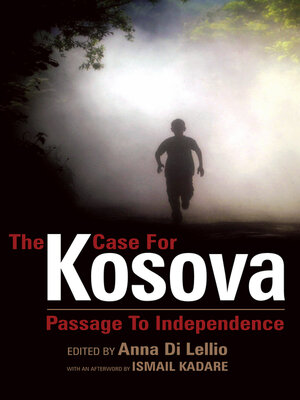The Case for Kosova
ebook ∣ Passage to Independence · Anthem Series on Russian, East European and Eurasian Studies
By Anna Di Lellio

Sign up to save your library
With an OverDrive account, you can save your favorite libraries for at-a-glance information about availability. Find out more about OverDrive accounts.
Find this title in Libby, the library reading app by OverDrive.



Search for a digital library with this title
Title found at these libraries:
| Library Name | Distance |
|---|---|
| Loading... |
This book makes the case for the independence of Kosova – the former province of 'old-Yugoslavia' and now temporarily a United Nations-led International protectorate – at a time in which international diplomacy is deeply involved in solving the contested issue of its 'Final Status'. The aim of the book is to counteract the anti-Albanian propaganda waged by some parties, but never to propose a counter-propaganda hostile to others or to the goals of a democratic Kosova.
|This book makes the case for the independence of Kosova – the former province of 'old Yugoslavia' and now temporarily a United Nations-led International protectorate – at a time in which international diplomacy is deeply involved in solving the contested issue of its 'Final Status'. Negotiations began in January 2006 under the auspices of a United Nations Special Envoy, and have been given renewed impetus by the international community's determination to arrive at a solution.' The Case for Kosova' aims to contribute to these negotiations, by providing informed arguments for a different approach to the issue of Kosova's status beyond the limitations of current debates. Its aim is to counteract the anti-Albanian propaganda waged by some parties, but never to propose a counter-propaganda hostile to others or to the goals of a democratic Kosova. Debates on Kosova have largely concentrated on a specific aspect of the issue: either on ideology and myth construction (ignoring translations into practice); on geo-politics (missing the deep implications for stability and security); or on policy (lacking a conceptual understanding of both ideologies and processes). Until now, no book has linked these different fields in a persuasive manner. 'The Case for Kosova' fills this gap with an intellectually challenging and politically relevant commentary from key players in the debate.







